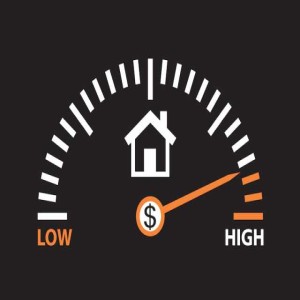

4.8K
Downloads
118
Episodes
Terry Story’s Real Estate Survival Guide podcast includes her weekly round-up on NPR's "The Steve Pomeranz Show," WLRN and affiliates. The show provides expert advice in all aspects of the real estate transaction from listing to negotiations; to sales and purchase and everything in between.
Terry Story’s Real Estate Survival Guide podcast includes her weekly round-up on NPR's "The Steve Pomeranz Show," WLRN and affiliates. The show provides expert advice in all aspects of the real estate transaction from listing to negotiations; to sales and purchase and everything in between.
Episodes

Monday Nov 25, 2019
Here’s How To Price Your Home So It Sells
Monday Nov 25, 2019
Monday Nov 25, 2019
During this week’s Real Estate Roundup, Steve spoke with Terry Story, a 31-year veteran at Keller Williams, about why it’s so important for real estate agents to look at the big picture to understand how the market is moving. They discussed how each realtor needs to examine their own inventory and how it’s selling in order to get a better understanding of the current state of the housing market. Doing this also helps real estate agents teach sellers how to price their homes.
Pricing Your Home To Sell Is Counterintuitive
To understand how to price a home, you really have to know what the market is doing. Agents have to look at what’s happening with their own home inventories. Are homes selling? How long are they staying on the market? If a home is sitting on the market, not selling, then you have to figure out what it will take to move it.
The economy as a whole has to be considered, of course. But, this is an important point for home sellers to keep in mind, in both good and bad markets, there is always a buyer. The thing that really makes the difference, that decides whether your home sells, is the price.
Terry talked about meeting with sellers when they want to know what price tag to put on their home. She paints them a picture. Imagine there’s a boat and three men are fishing. The first man’s line is just below the surface of the water; the second man’s line is halfway between the surface and the ocean floor; the third man’s line is near the reef at the bottom of the ocean, where the majority of the fish are. The moral of this story is that the lower line (the lower price) is going to have a better chance to catch a fish (buyer). The less a seller asks for, the more they’ll end up getting. Home pricing is counterintuitive in this way.
People who price their homes in the upper and middle tiers aren’t going to attract as many buyers because the price is just too high. The National Association of Realtors says that if your home hasn’t been shown in the past two weeks, you’ve been knocked out of the market. The only real way to combat this is to lower the price. A lower price will attract more buyers, period. And more buyers equal more competition, more bidders, and, thus, realizing a higher sale price for your home. Counterintuitive pricing!
You Have To Go Where The Buyers Are
In order to sell your home, you have to meet buyers where they are. And most of them are in the low-to-mid-range when it comes to prices. The mid-range homes are tricky. Homes priced at the lower end of that might have quite a few showings, maybe eight or ten in a week. But, going back to the fish analogy for a minute, the fishing line halfway between the top and the bottom is kind of housing market purgatory.
In fact, homes priced in the middle range sometimes help sellers in the lower range sell their homes faster and more easily. People may look at homes in the middle-price bracket, but if they can find something similar in a lower-price range, that’s what they’re going to snap up.
You can also think about it in the sense of animals in the desert. If a predator wants to get a good meal, it has to go where the water is. This is where more animals are going to gather, which offers the predator its best chance of getting a meal.
You have to price your home in a way that gives you the greatest access to the biggest pool of buyers.
Factors Real Estate Agents Should Be Looking At
There are really three prongs to pricing that real estate agents should be looking at: current market prices, the price of homes sold in the past, and the trends that are happening that predict future prices. In order to spot future trends, you have to look at “days on the market.” This is the average amount of time a house spends on the market, from the day it goes up for sale to the day that it closes. Right now, in Boca Raton, we’re seeing about 97 days on the market.
Knowing how long homes are on the market, how quickly they’re selling, helps you predict future trends. Of course, we’re talking about looking at days on the market for hundreds of thousands of homes. Then you have to break it down a little further, into price points. The lower the price of a home, the more activity there’s going to be. As the price point goes up, activity slows.
The big stressor for most sellers—and the agents they work with—is that, naturally, they want to get the most money they can for their property. It’s important to be at the market, not over and not under, unless it’s critical to get the property sold in a very short period of time.
Agents need to help sellers price their home in the sweet spot. This attracts the most buyers and, in the end, helps sellers get the most money for their home. How do you know if you’re in the sweet spot? If you’re getting eight to ten showings a week, then you’re there. If your house hasn’t been shown at all for two weeks, you’re not and you need to adjust the price.
If you’d like to learn more about buying or selling a home or to learn more about Terry, check out Keller Williams.

Thursday Nov 21, 2019
Today's Housing Market Indicates A Strong Economy
Thursday Nov 21, 2019
Thursday Nov 21, 2019
During this week’s Real Estate Roundup, Steve spoke with Terry Story, a 31-year veteran at Keller Williams about the cyclical nature of the housing market. Just like the stock market, the real estate industry is cyclical, with housing prices oscillating back and forth between periods of rising prices and falling prices. Terry and Steve talked about how the real estate industry is often a good economic indicator, revealing how the economy is doing and what direction it might be headed.
Watching The Trends
When you’re trying to gauge how pretty much anything is doing, you watch out for trends or patterns. This is especially true when you’re trading in the stock market or thinking about buying a house.
A lot of people are asking when the next recession is going to come. Right now, the stock market is at all-time highs. But the prolonged, substantial bull market has some people starting to worry. “Have prices topped out? Do I need to sell now?”
We all know that the stock market is viewed as an economic indicator. The real estate industry is similar in that way because overall economic conditions affect the real estate industry just as they do the stock market. That means that housing prices are also an economic indicator, as they reflect how the overall economy is doing. Housing prices never stay flat for long; they’re always either going up or going down.
Real estate agents look at the trends: units, pricing, everything. Are they going up (higher home prices, fewer days on the market, more sales) or down (lower home prices, sitting on the market longer, lagging sales)?
What The Real Estate Market Is Telling Us Right Now
There are always unknowns, variables that affect trends in the housing market. But what we can see right now is that the market is really strong. Low-unemployment levels coupled with super low-interest rates and homes in an affordable price range are key factors in the current market. Homes are starting to get priced higher, something that would normally lock out more buyers. But that’s not happening at the moment because interest rates are at an all-time low. They’ve dropped a full percentage point over the last year. For homebuyers, a simple interest rate drop of 1% means they can afford a 10% higher home price. It’s a big deal.
If you look at the stock market, as interest rates go down, we see asset prices rise. This is what’s happening in the real estate market, too. People can borrow money cheaply, meaning they can borrow more and buy bigger and better homes. But this is a bubble that will pop eventually. What we’re going to start seeing is a mismatch between median annual income and median home prices. But because interest rates are so low, the median-home price isn’t being adjusted in line with income. Eventually, if median income doesn’t start to rise, the median home price will have to adjust downward. The market will start to reverse itself. Or if interest rates start rising, that will change the trajectory of the market, too.
Steve noted that the good news for the moment for homebuyers is that the super-low interest rates mean that even though home prices are rising, homes are more affordable. And the good news for sellers is that home prices are up. They can ask top dollar for their homes and probably get it.
If you’d like to learn more about buying or selling a home or to learn more from Terry, check out Keller Williams!

Tuesday Nov 12, 2019
Get To Know These Important Real Estate Acronyms
Tuesday Nov 12, 2019
Tuesday Nov 12, 2019
During this week’s Real Estate Roundup, Steve spoke with Terry Story, a 31-year veteran at Keller Williams about some important and interesting terms in the real estate industry. These terms are often simplified into acronyms to make them easier to remember. Understanding what these terms mean is important for you if you’re buying or thinking about buying a home. They also briefly discussed some signs to look for to determine if the housing market is rebounding or not.
APR And FRM
APR stands for the annual percentage rate. It’s what you pay annually for borrowing money. This is based on the amount of the loan, the interest rate on the loan, and certain fees that are attached to the loan.
So, for example, if you go to buy a car and take out a loan with a loan rate of 3.5%, the APR might be 3.75%. The APR is different because it takes into account not only the interest rate you pay but also any annual fees that may be attached to the loan.
The same happens with a mortgage. You borrow a certain amount of money and have interest and fees attached to the loan. The APR tells you the amount, as a percentage of the loan, that you’ll actually be paying yearly. This is important to know because it helps you get a better sense of exactly what your expenditure is going to be.
FRM stands for fixed-mortgage rate. This term is pretty simple and is typically sought after by a lot of mortgage seekers because it means the interest rate attached to your loan doesn’t change. From one year or one payment period to the next, the rate stays the same.
DTI – Debt To Income
DTI refers to the debt to income ratio. This is a financial metric that reflects the percentage of your monthly income that goes toward paying your debts. If you’re buying a home, lenders prefer limiting a home loan to no more than about 36% of your income. There are variables when it comes to the true percentage that lenders will recommend that you spend. These variables include things such as other significant debts and your credit rating.
Why wouldn’t lenders want you to spend more? This is pretty simple: they don’t want you to go broke. This is bad for you and bad for them because it means you’re less likely to be able to pay off the entirety of the loan. If it’s a loan that requires collateral, they get something back, meaning they can foreclose on your home, but they may not get back the entirety of the money they lent you, and they have to go through the hassle of trying to then sell your home.
PMI – Private Mortgage Insurance
PMI stands for private mortgage insurance. Principal and interest are portions of your monthly mortgage payment that go toward paying off the money you borrowed in order to buy your home. If you put less than 20% down on a home, that’s really when you should get PMI. The lender needs to know that you have enough money to cover them and insure the loan.
Once you’ve started to pay down the full cost of the loan—when your loan to asset ratio is better—you can stop paying for PMI. But this isn’t a decision you get to make on your own. You have to bring this to the attention of the lender. They’ll more often than not send your information to an appraiser to determine the value of your assets and determine if your rate can be calculated differently.
But you have to be proactive. If you think you’re close to the 20% mark, check with your lender. It may even be worth talking to a realtor first. They can give you a good idea of the value of your home/assets and if the amount you’ve paid will qualify you for a better rate.
Signs Of A Rebounding Housing Market
Part of buying a home is knowing the terms. But part of it is also knowing whether the housing market is rebounding or not. One trend to look for is consecutive months of growth with existing home sales numbers. The market is cyclical and has a lot of ups and downs. You really want to watch for at least three months of home sales numbers increasing.
The next trend to watch for involves pending home sales. These are contracts that are in the works but haven’t been closed yet. What you want to look for there is a growing number of pending home sales in each of the four major regions of the country. Increasing numbers of pending sales means that there is potential for growth in the future, that inventory is growing, and it’s probably a good time to buy or think about buying.
The final thing to watch for is buyer traffic. Pay attention to the number of people realistically shopping for homes versus the same time during the previous year and for the first time in 12 to 13 months. If traffic is up, it’s a good sign that the housing market is rebounding.
All of these statistics can easily be Googled to help you get a good sense of where the housing market is and where it’s going. This is something you can do for yourself before you start shopping for a home.
If you’d like to learn more about buying or selling a home, check out Keller Williams!

Thursday Oct 24, 2019
Negotiating Repairs Before You Buy The Home Of Your Dreams
Thursday Oct 24, 2019
Thursday Oct 24, 2019
In this week’s Real Estate Roundup, Steve and Terry Story, a 31-year veteran at Keller Williams, looked closely at what types of repairs homes often need when they go up for sale. It’s important for you, as a home buyer, to understand what is reasonable to ask the seller to fix and which repairs might be easier and less expensive to fix on your own.
Under $500? Just Fix It Yourself
Terry’s rule of thumb on needed repairs when you’re buying a home—and there are always a few things that need to be fixed—is anything less than $500 to $1,000, just handle it yourself. It’s just easier all around that way. You should look at that cost in relation to the total purchase price of the house. The seller’s not going to want to renegotiate over a couple of hundred dollars. Terry tells home buyers to look for big-ticket items, things like needed roof repairs or the heating/cooling system not working right. Those are the issues you really need to work out with the seller before closing the deal.
When buying a home, you’re often agreeing to buy “as is, with the right to inspect”. You negotiate in good faith that nothing major is wrong. If a home inspector does a walkthrough and you’re not happy with the results, you can still pull out of the deal. You also have the right to renegotiate, and that’s the best way to handle significant repair issues.
Negotiating For Home Repairs
The easiest way to handle repair issues is to negotiate a credit toward the purchase price with the seller. For example, if there’s a total of around $1,500 worth of repairs needed, you might ask the seller to knock $1,000 off the price. You can easily negotiate down a bit from whatever number the home inspector gives because those numbers are usually highly inflated. They might peg a toilet repair at $250 that you can do yourself with a $25 part from Home Depot.
Negotiating a credit is probably a smarter way to go than having the seller agree to handle the repairs. Why? Well, what can happen is that the seller pays for the repairs, but then when you do a new walkthrough, you might not be satisfied with the work that’s been done, but the seller doesn’t feel as though they should have to spend more money after having paid someone once for the work. The smart way is to get a credit from the seller and then handle getting the repair work done yourself, assured that things are fixed to your satisfaction.
Don’t Be Afraid To Point Out The Need fFr Repairs
When you’re negotiating the price of a home, sellers assume you’re seeing things that obviously need to be repaired, such as cracks in the ceiling or the floor or plumbing issues. There may be some repairs that the seller isn’t aware of, however. Sometimes issues with air conditioning and heating or even a leaky roof might not be apparent. Make sure you bring all repair issues to the seller’s attention early on, not at the last minute just before closing.
You aren’t always going to be able to notice needed repairs yourself, so make sure to bring a home inspector with you when doing a walkthrough. And if there are specific and major issues, such as electrical wiring, then go the extra mile and bring in an electrician to assess the situation. It’s worth spending the money on a professional upfront, rather than finding out after you’ve bought the home that there are significant repairs needed. It’s too late then to renegotiate with the seller.
If you’d like to learn more about buying or selling a home, see Terry at Keller Williams!

Thursday Oct 24, 2019
How Low Interest Rates Are Pushing Up Home Prices
Thursday Oct 24, 2019
Thursday Oct 24, 2019
In this week’s Real Estate Roundup, Steve spoke with Terry Story, 31-year veteran at Keller Williams Realty, about how low-interest rates are significantly shrinking the already dwindling home inventory, creating upward pressure on home prices. Steve and Terry talked about what this all means for home buyers and how to avoid unnecessary problems that can occur by asking the home seller to handle minor repair issues.
Lower Inventory Means Rising Prices
Inventory in the housing market is getting tighter and tighter. The “canary in the coal mine” in this scenario is the historically low mortgage interest rates. These low rates are producing more prospective home buyers. This increased demand for houses is choking the market, leaving less and less inventory, especially in the low to mid-price range (around $200,000 to $700,000).
At the moment, the basic supply and demand equation is creating demand but not much supply. Terry and Steve have recently talked about the trend among baby boomers to hold on to their existing homes rather than doing the traditional downsizing around retirement time. The net result is that home prices are starting to creep up.
Why Interest Rate Can Be More Important Than Price
Interest rates had increased to around 5% in the fourth quarter of 2018, but mortgage rates are now under 4%. Many people say they’re going to wait to buy a home because prices have gotten too high. But you need to remember how important your mortgage interest rate is in respect to the actual price of the home.
When you finance your home, you should consider affordability rather than just the absolute price, since the mortgage interest rate determines affordability. With a 7% interest rate, for example, you might be able to only afford a $250,000 house, but with rates just above 3%, you could possibly afford a $500,000 house because those significantly lower rates bring down that monthly mortgage payment. Even though home prices are getting pushed up by the low home inventory, these really low mortgage rates mean that you may be able to get a good deal now. Waiting for lower prices to come about might not be your best option. It can be cheaper to buy a higher-priced home with a low-interest rate than buying a lower-priced home with a high-interest rate.
Don’t forget that a huge money-saver can be a 15-year mortgage instead of a 30-year mortgage if you can handle the higher payments. A $250,000 house with a 4.5% rate on a 15-year mortgage can save you over $100,000 in total interest payments, as compared to a 30-year mortgage. If you already have a 30-year mortgage, you could make one extra payment to principal every year, thereby reducing your mortgage payoff time down to about 18 years. In addition, this can save you tens of thousands in interest payments.
Handling Minor Repair Issues When Buying A Home
Just a quick note about home inspectors and the repair issues. An inspector who comes out to check out your home will likely discover some necessary repairs. A good rule of thumb is if it’s less than $100, let it go. Instead of insisting that the seller pays for the repairs, take care of it yourself. It’s not worth creating roadblocks to closing the deal over minor issues. The only things you need to make an issue of are genuine structural problems.
To get more of the benefits of Terry’s expertise, whether you’re a home buyer or a home seller, check out Keller Williams today!

Wednesday Oct 16, 2019
You Need A Permit To Replace Your Sink? And Other Laws You’re Probably Breaking
Wednesday Oct 16, 2019
Wednesday Oct 16, 2019
Steve spoke with Terry Story, a 30-year veteran at Keller Williams. During this week’s Real Estate Roundup, Terry and Steve talked about permits that homeowners have, what open and expired permits are, and why they can cause problems for homeowners looking to sell their home and for realtors assisting them.
Open Permits Can Sneak Up On Homeowners
When homeowners go to sell their homes, multiple searches are run on the home to see if money is still owed. This includes a tax lien, a city search, and a search for permits. There could be permits on just about anything. The guy putting in the air conditioning may have opened a permit. The same could be true for the guy installing electricity. There are could be five or 10 permits open that the homeowner and their realtor is unaware of.
There is a fee simply to run the permits. This can become a major headache. In order to close any open permits, the realtor must jump through an incredible number of hoops. They literally have to chase down the individuals or companies who opened the permits, which may have been sitting around for years, even decades.
The permit may have expired. It is then the homeowner’s/realtor’s responsibility to find the party who originally opened the permit. The permit must be reopened so that the fees and the permit can be paid off and closed permanently. So, basically, you’re talking a lot of extra work and extra expense for someone trying to sell their home.
The Letter Of The Law
Recent legislative victories, fortunately, have changed the scope and hassle of permits. Starting October 1, 2019, local governments will be allowed to close out permits six years after they’re issued, as long as there aren’t any clear safety issues. For example, say there was a permit to repair a sinkhole, but repairs weren’t completed. The government would not be able to close out the permit without making sure that the sinkhole is dealt with or that it doesn’t pose a threat.
The true difficulty with permits—and why the new legislation is so helpful—is that just about everything, any kind of repair or maintenance work in a home, needs a permit. It can be incredibly difficult to keep track of all the permits attached to a home and to know if they are open, closed, or expired.
The permit problem can be a real obstacle because permits are the kind of thing that doesn’t get checked until you’re maybe a week or 10 days from closing. You may have to do some really fast work to get things squared away in time for the closing. Permits are such a problem that there are businesses that specialize in clearing them for you—for a fee, of course.
Deposits/Fees
Changing gears slightly here, let’s talk a little bit about deposits and fees. There seems to be confusion among individuals about putting down a deposit, specifically a non-refundable deposit. This is basically money that you put down, usually to help the owner of the property protect against damages.
For example, if you’re renting and have a pet, the property owner may ask for a non-refundable deposit to protect himself against any damage the pet may do to the property. Once you leave, the owner can use that money to pay for repairs if necessary.
There is a difference between a refundable deposit and a fee, but there’s really no difference between a fee and a non-refundable deposit. The term “non-refundable deposit” is kind of an oxymoron. If it’s non-refundable, then it’s effectively a fee.
To learn more about buying a home, selling your home, or about real estate in general, visit Terry Story at www.//terrystory.com/ or Keller Williams at https://www.kw.com/kw/.

Wednesday Sep 25, 2019
Get Your Money Back On These Top 10 Home Projects
Wednesday Sep 25, 2019
Wednesday Sep 25, 2019
Terry Story, 30-year Keller Williams veteran and all-around fun person to talk to, had some thoughts on recouping a remodeling investment.
Remodel Now Or Later?
When considering a remodel, Terry advised thinking ahead. Will a remodel allow the current owners to sell the house to new owners? Not if the remodelers go nuts. Remodeling for resale also has to take time as a factor. Enhancing the kitchen now and putting the home up for sale? Good idea. Enhancing the kitchen now and putting the home up for sale in ten years? Maybe not so much. Garage doors tend to be a go-to home enhancement, which led to a discussion on the importance of curb appeal, as well as the ability to display and/or hide a vehicle to better attract buyers. 9/25/19
Terry offered estimations on manufactured stone veneer, minor kitchen remodels, deck additions (not really a thing in South Florida), pool additions (that’s more like it!), siding, doors, and vinyl windows (Terry got carried away on a Three Little Pigs analogy; that’s why we like her).
The Impact Of Impact Windows To A House
Steve asked about impact windows, and Terry gave the example of a seller of a $1.4 million home considering the installation of impact windows at $100,000. The question: can the seller recoup the $100,000 investment? The answer: try lowering the price first. Terry answered that when a seller gets told a house needs this or that before it will sell, the prospective buyers are actually saying they can’t see the value of the house for the listed price. In other words, the house has been priced too high.
Terry added that since impact windows won’t withstand the force of flying objects during a hurricane, the better choice might be to buy good insurance
Do Not Proceed With Two Brokers
Finally, Steve and Terry considered a seller/broker fight concerning a cancellation fee over a listing agreement. Terry stressed that any new broker working with the seller needs to know about the listing agreement between the seller and the first broker and that both parties have agreed to the release. Not doing so leaves the listing and both parties in limbo until the listing expires, at which point the seller should reach out to the broker and come to an agreement.

Wednesday Sep 18, 2019
Realtors Vs Builders: How Well Do They Really Work Together?
Wednesday Sep 18, 2019
Wednesday Sep 18, 2019
In this week’s real estate roundup, Steve spoke with Terry Story, 30-year veteran at Keller Williams, about the importance of real estate agents building relationships with builders and construction companies and what these relationships mean for homebuyers.
Having Someone On Your Side
There are a ton of builders and major companies constructing entire communities full of beautiful homes. These companies want people to find out about their homes and buy them. That’s why they start building relationships with realtors and agents. Realtors and agents act as a sort of middleman, finding and bringing buyers to the doors of the homes.
But how exactly does this work? Let’s say you as a prospective homebuyer want to go to ABC construction site. The realtor brings you out. For connecting them with a potential buyer, the builder compensates the realtor/real estate agent. It doesn’t cost the homebuyer anything.
Understanding Home Pricing
It’s important to understand how builders price things. They have already factored in the real estate agent’s commission. So, it wouldn’t really be right for prospective homebuyers to say, “Well, I didn’t come with a realtor, so I’m keeping X amount of dollars.” It just doesn’t work that way.
Time changes things for builders. As things get closer to build out, things become more expensive – like certain lot locations. But the base price of the house remains the same. The agent is on the side of the homebuyer. They can sometimes negotiate different aspects that go in the home to help bring the price down, things like flooring and tile. Since it doesn’t cost the homebuyer anything extra, it’s really to their advantage to have a realtor’s assistance.
Buying A Home In A New Development
Let’s say there’s a new development that’s announced. A plot of land is cleared, and a little mobile home office is there. But no homes are built yet. There may be some plots that are outlined, but no actual houses have been built. It’s in the pre-construction phase. Homebuyers can definitely save money by buying at that early stage, but they’re also taking a risk. What if the development doesn’t take off and sell well?
Still, buyers definitely pay more by waiting. The building company tends to give better prices to people who buy before the homes are even built. The other advantage of buying early is that, of course, you have the best choice of lots.
With buying a home in a new development, the truth is, as always, “buyer beware”. Builders hire professional decorators to stage the model homes and there are a lot of tricks they can use to make the spaces look as big as possible and the lot locations the most attractive.
If you’d like to learn more about buying or selling a home, or, to learn more about Terry, check out Keller Williams.

Tuesday Sep 03, 2019
Have Real Estate Prices Peaked?
Tuesday Sep 03, 2019
Tuesday Sep 03, 2019
Steve talked with Terry Story, a 30-year veteran at Keller Williams, about the current state of the larger (macro) real estate market. They discussed prices and how prices affect the market and vice versa. Terry also noted the key factors that help to explain whether the real estate market favors home buyers, home sellers, or both.
Home Sales Are On The Rise
Home sale numbers are on the rise. Month over month, we’re looking at about a 2.5% increase. This figure is based on calculations made by the National Association of Realtors. In the thirty days between June and July, 2019 alone, home sales increased by 2.5%. Essentially, it’s shaking out to about 0.6% year over year.
This is an increase in home sales alone; prices aren’t necessarily climbing with it. Part of this is due to the extremely low-interest rates these days. Last year, December of 2018, there was a marked climb in interest rates. It was a big deal at the time, something that spooked people, and the market saw a huge selloff. In the eight months between then and now, home mortgage rates have come down and are staying down.
The Fed has even begun to lower the rates on short term loans, leaving the prevailing interest rates sitting at 3.5% to 4%. These are some of the lowest rates the market has seen in decades.
The Issue Of Home Inventory
So, the other big issue in the macro real estate market is that of house prices. And inventory has a lot to do with it. Real estate is being scooped up because of better rates, and in a lot of places, this is putting home inventory at nearly record-breaking lows, specifically when it comes to homes in the affordable price range.
Home prices have been rising, about 4.5% year over year. It’s been doing this for 89 consecutive months which is definitely a trend—that doesn’t seem to be weakening. Economically speaking, when it comes to the idea of real estate, in particular, things are looking very healthy.
But it’s important to keep in mind that the real estate market is a local thing. What’s happening in California won’t necessarily affect what’s happening to the market in Florida. In identifying market trends, we have to look at what the trends seem to be over time and be paying attention to national trends, regional trends, and local trends.
Rental Properties And Leases
There definitely seems to be a surplus of rental properties. While many investors are swooping in to scoop these properties up and turning them into condos, many others are choosing to leave them as rental spaces for the monthly income they can generate.
If you are a renter, it’s important to pay close attention to your lease agreement. If the property you live in is sold to a new owner or landlord, they don’t have the right to ask for a new security deposit. The new landlord should inquire of the previous owner as to each tenant’s security deposit, as outlined in the lease agreement. They should ask the previous owner for a signed statement (estoppel) or a copy of the existing lease which spells out what tenants are paying/have paid. When they buy the property, they buy the existing leases.
Still, you should do your part as well, by making sure the new owner/landlord knows you’ve paid the deposit amount. Know that you aren’t required to pay the security fee again. Less than honest landlords may try to recollect such payments or make additions to your lease that essentially let them stick their hands back into your pocket.
How The Real Estate Market Is Defined
There are constant references made to whether the current real estate market is a buyer’s market or a seller’s market. But, what does this actually mean? A market is really defined by how much inventory there is. Realtors use the absorption rate. How many months’ worth of home inventory is there? If there are more than six months of inventory to be sold (usually looking at close to seven months), there’s a high supply, making it a buyer’s market. Less inventory, let’s just say five months or less to be sold, it’s a lower supply, which means it’s a seller’s market. The definition of the market is based on inventory—supply and demand.
But it might be a buyer’s market in one price segment and a seller’s market in another. This is because the inventory of houses, as touched on above, in given price ranges can be (and usually is!) dramatically different.
Currently? In the $1 million and up range, it’s very much a buyer’s market. From $500,000 to $1 million, it’s balanced because there’s right around six months’ worth of houses to sell. But it’s a true seller’s market for homes priced below $500,000.
And that’s our weekly Real Estate Roundup. If you’d like to learn more about buying a home or selling your home, head on over to Keller Williams! 8/19

Monday Aug 19, 2019
The Most Popular Home Styles Right Now
Monday Aug 19, 2019
Monday Aug 19, 2019
Steve spoke with Terry Story, a 30-year veteran at Keller Williams. In this installment of the weekly Real Estate Roundup, Steve and Terry talked about why now is a great time to buy a home. The big takeaway is there are several future advantages to buying your dream home now.
Fixed Mortgage Rates
One of the biggest advantages to buying your home now is the ability to secure a fixed mortgage rate, which is basically a stable housing payment. If you can afford it now and your income leaves enough room that you’re not worried about making payments, you benefit from buying your home. You pay a fixed rate of interest on your mortgage. This is in contrast to, say, renting a place with no rent control. With inflation, your monthly mortgage payments could climb and cause your finances to spiral.
Buying your home now – as long as you can comfortably afford the payments – means you’ll consistently pay the same amount until your mortgage is paid off. You’re essentially protecting yourself from the adverse effects of inflation.
Low-Interest Rates
In today’s market, interest rates are at an all-time low. This is the second most important reason to scoop up your dream home now and a major part of the reason why it’s a buyer’s market. Could these rates stay low for many years? Sure. But the truth is that the housing market is cyclical and the chances of them climbing are pretty good.
Locking in your home loan now means you get a low-interest rate on your mortgage and consistent payments until the loan has been repaid.
Many people look at the prices of homes only. While it’s important to be able to afford the outright price of the home, keep in mind that when housing prices rise, interest rates drop. Are homes perhaps a little more expensive today? Yes. But this is largely a response to the fact that – as discussed before – inventory supplies are dwindling, which means homes are being listed at higher prices since the need to earn more off each home is greater. Also, due to the dwindling supply of available homes, people are willing to pay more to secure a home.
Home Trends
Popular home trends and styles vary over the years and are dependent upon geographical location. But the truth is that some home styles are consistently in demand.
The ranch style home has been at the top of the list for decades. This is a one-level home, with three or four bedrooms. Why is it so popular? It’s a decent home to age in; having one level means everything is easily accessible. And a three-bedroom ranch is perfect for almost any size household since it leaves rooms open for guests and the ability to create a home office or den.
The Tudor (which references the English Tudor dynasty) is another popular home style. It’s an English-style home with enough class to impress but enough flexibility to allow for a modern feel. Also on the list of popular home styles: craftsman, Mediterranean (which is incredibly popular is beachy places like Florida), and modern.
If you’d like to learn more about buying or selling a home or to learn more about Terry, check out Keller Williams! August 13, 2019

Monday Aug 05, 2019
Is Climate Change Beginning To Affect The Value of Your Florida Home?
Monday Aug 05, 2019
Monday Aug 05, 2019
Terry Story joined us once more for our weekly round-up of everything related to the real estate market. The section began with a talk about rising water levels and how these have been impacting on real estate prices in some parts of the country. Terry noted that the biggest falls have been Ocean City, New Jersey, followed by Miami Beach. She commented that it’s not a massive problem, but nonetheless, one that has impacted on the housing market.
Rules and Regulations
A listener sent in an interesting question regarding dogs, having seemingly agreed to all regulations regarding his pet dog, but then later having been told that it wasn’t allowed due to its size. Terry observed that this is a frequent problem, with new legislation and documents being drawn up all of the time in the housing industry. Both Steve and Terry agreed that this is where a good realtor can come in handy, and also emphasized that buyers should try to get hold of all documents related to a property and make this a priority. (0403)

Wednesday Jul 31, 2019
What Millennials Have Learned From Watching Their Parents Real Estate Mistakes
Wednesday Jul 31, 2019
Wednesday Jul 31, 2019
Millennials Are Dominating The Market
Today, more first-time buyers are millennials than ever before. Millennials are now essentially dominating the market, playing a very important role in real estate sales.
The biggest reason for this? The majority of them are of the age where they are beginning to form households, getting married, and having children. This is the group who are in their late 20s to late 30s.
Jobs And Attitude
Another reason millennials are taking over the market is that the economy is stronger and better jobs are available for them. And because they’ve formed households, they often have two incomes coming in, which means that they can buy bigger first homes than their parents did.
Millennials have watched some of the financial mistakes their parents have made, therefore, they have a different attitude about things. They’re more conservative financially. They watched the housing market crash when, instead of spending the traditional 30% of income on housing, people were spending 60% or more on housing. Millennials aren’t making the mistake of being fooled into thinking that housing prices will increase exponentially and indefinitely.
Space And Location
Millennials today, particularly those with children, are looking for more space and better locations. Of course, the definition of a great location depends entirely on the millennial or the millennial couple. Some could be looking for a country club setting. Others may want a beach-front property. Others are looking to be in the middle of the woods or the middle of downtown. Millennials tend to be more adventurous and individualistic as far as wanting to explore different locations.
One of the main focuses for millennials with children is a location near good schools and activities that their children will be able to get involved in.
One final point on locations: millennials have started job-hopping a lot. This could be blamed on their adventurous spirit. But what it means for the real estate market is that they end up buying more homes and often in many different places.
Switching Gears To The Older Generation
Now, it’s time to talk about the older generation. A general rule of thumb goes that the older generation—once the kids have left the nest—are usually looking to downsize. They may own a four- or five-bedroom house with space that they don’t really need.
Typically, a sizable amount of equity has built up in the home. It’s appealing to think about capturing the equity and reducing the cost of living by getting a smaller place. But a new trend called “aging in place” appeals to about 83% of older homeowners who are deciding they want to stay in the home they have. There is a consistency with that that’s comforting to a lot of people.
However, the home they currently live in might not be senior-citizen friendly; it may have lots of stairs or bathrooms that don’t accommodate their needs, which could lead them in the trap of spending more money to renovate their home. Aging in place also means that seniors don’t have access to the amenities that are available in a retirement community. Nonetheless, that’s the choice many seniors are making.
If you’d like to learn more about buying a home or selling your home, connect with Terry at Keller Williams!